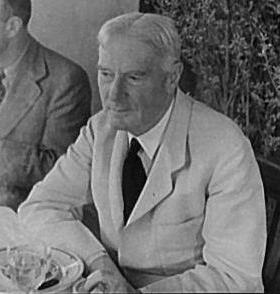A Quote by Miguel de Cervantes
No fathers or mothers think their own children ugly; and this self-deceit is yet stronger with respect to the offspring of the mind.
Related Quotes
Mothers and fathers act in mostly similar ways toward their young children. Psychologists are still highlighting small differencesrather than the overwhelming similarities in parents' behaviors. I think this is a hangover from the 1950s re-emergence of father as a parent. He has to be special. The best summary of the evidence on mothers and fathers with their babies is that young children of both sexes, in most circumstances, like both parents equally well. Fathers, like mothers, are good parents first and gender representatives second.
Nobody can misunderstand a boy like his own mother. Mothers at present can bring children into the world, but this performance is apt to mark the end of their capacities. They can't even attend to the elementary animal requirements of their offspring. It is quite surprising how many children survive in spite of their mothers.
In vain are Schools, Academies, and Universities instituted, if loose Principles and licentious habits are impressed upon Children in their earliest years . . . . The Vices and Examples of the Parents cannot be concealed from the Children. How is it possible that Children can have any just Sense of the sacred Obligations of Morality or Religion if, from their earliest Infancy, they learn their Mothers live in habitual Infidelity to their fathers, and their fathers in as constant Infidelity to their Mothers.
The knowledge that you were beaten and that this, as your parents tell you, was for your own good may well be retained (although not always), but the suffering caused by the way you were mistreated will remain unconscious and will later prevent you from empathizing with others. This is why battered children grow up to be mothers and fathers who beat their offspring
Here's the progression. Feminism won; you can have it all; of course you want children; mothers are better at raising children than fathers; of course your children come first; of course you come last; today's children need constant attention, cultivation, and adoration, or they'll become failures and hate you forever; you don't want to fail at that; it's easier for mothers to abandon their work and their dreams than for fathers; you don't want it all anymore (which is good because you can't have it all); who cares about equality, you're too tired; and whoops--here we are in 1954.
Self-deceit—It’s in the “Nine Satanic Statements” but deserves to be repeated here. Another cardinal sin. We must not pay homage to any of the sacred cows presented to us, including the roles we are expected to play ourselves. The only time self-deceit should be entered into is when it’s fun, and with awareness. But then, it’s not self-deceit!
Contrary to all we hear about women and their empty-nest problem, it may be fathers more often than mothers who are pained by thechildren's imminent or actual departure--fathers who want to hold back the clock, to keep the children in the home for just a little longer. Repeatedly women compare their own relief to their husband's distress
I'm not saying that all women are blameless - all women are not. There are women with despicable characters who are cruel and terrible and some of them are mothers. But why do we blame our mothers more than our fathers? We let our fathers get away scot-free. We hardly even knew who they were in many cases, given the way this culture raises kids, and they may have been quite cruel. They may even have raped us as children, but even if they raped us, we will blame our mothers for not protecting us instead of blaming our fathers who actually did it.
Given Freudian assumptions about the nature of children and the biological predestination of mothers, it is unthinkable for mothers voluntarily to leave their babies in others' care, without guilt about the baby's well-being and a sense of self-deprivation. Mothers need their babies for their own mental health, and babies need their mothers for their mental health--a reciprocal and symbiotic relationship.
Most children would rather preserve the fantasy of a loving connection with their fathers and mothers, at all costs, even if it costs them their self-esteem. When you're three or seven years old, it's less frightening to think of yourself as an unlovable, disappointing screwup than to recognize the fact that you're living with a monster.




































